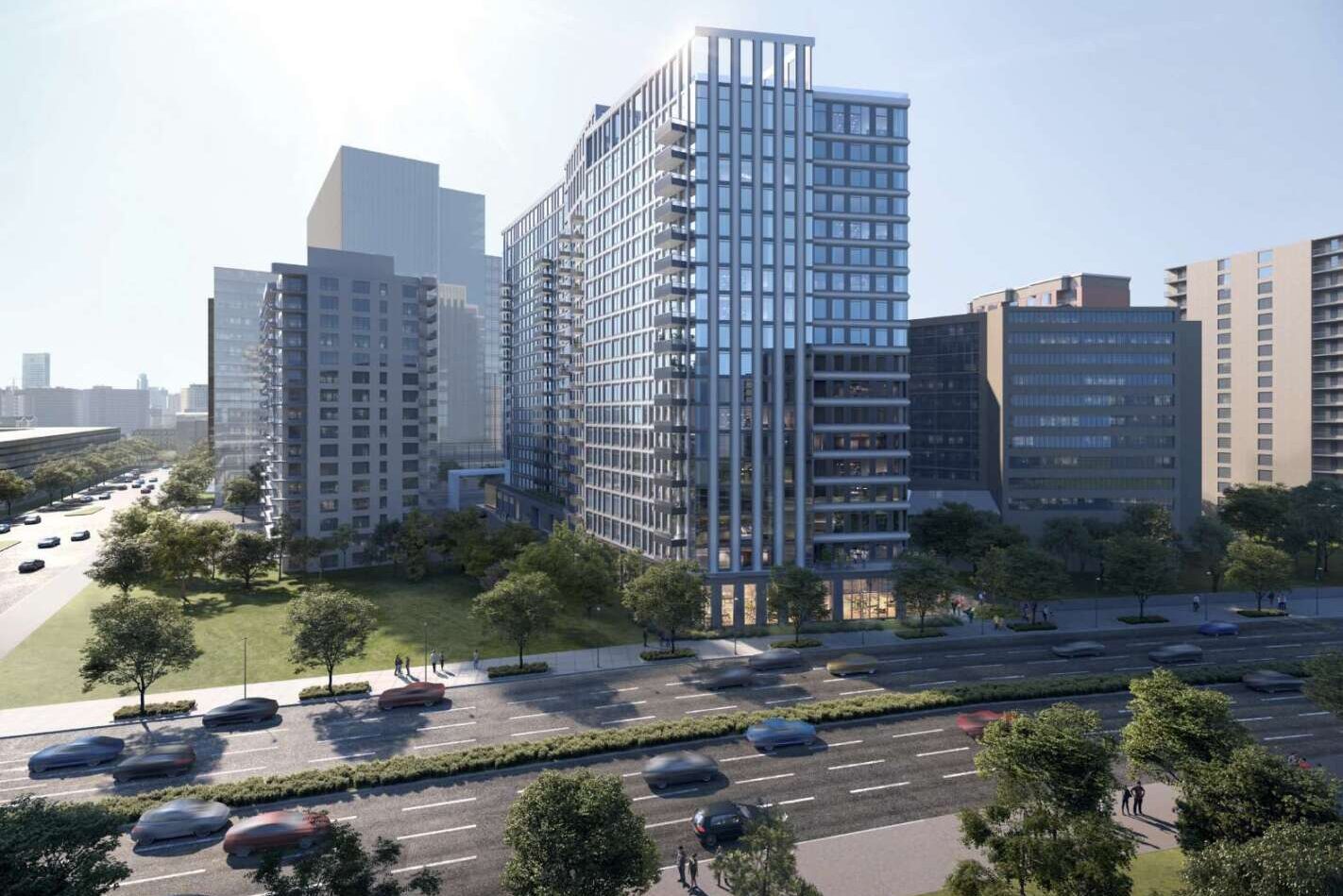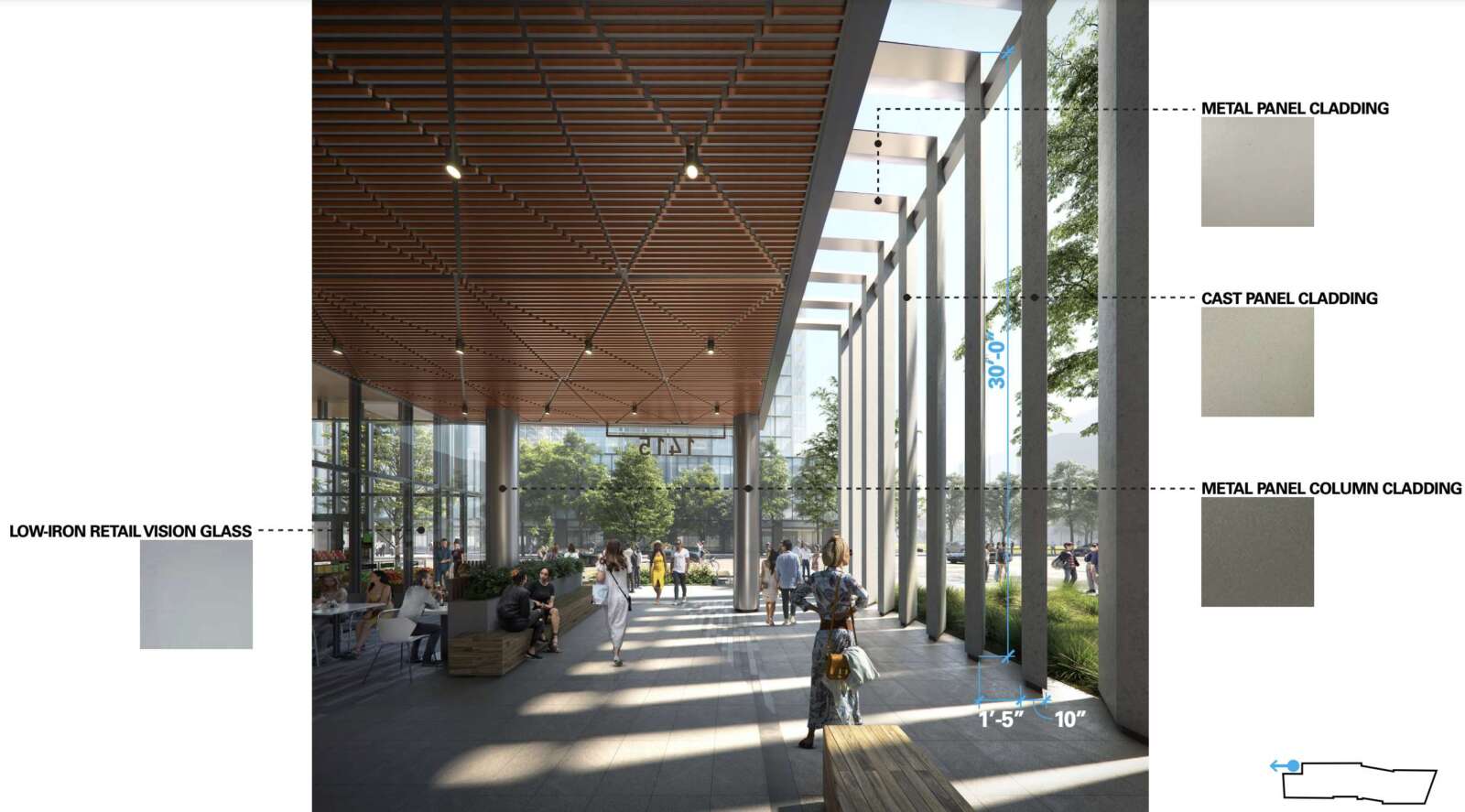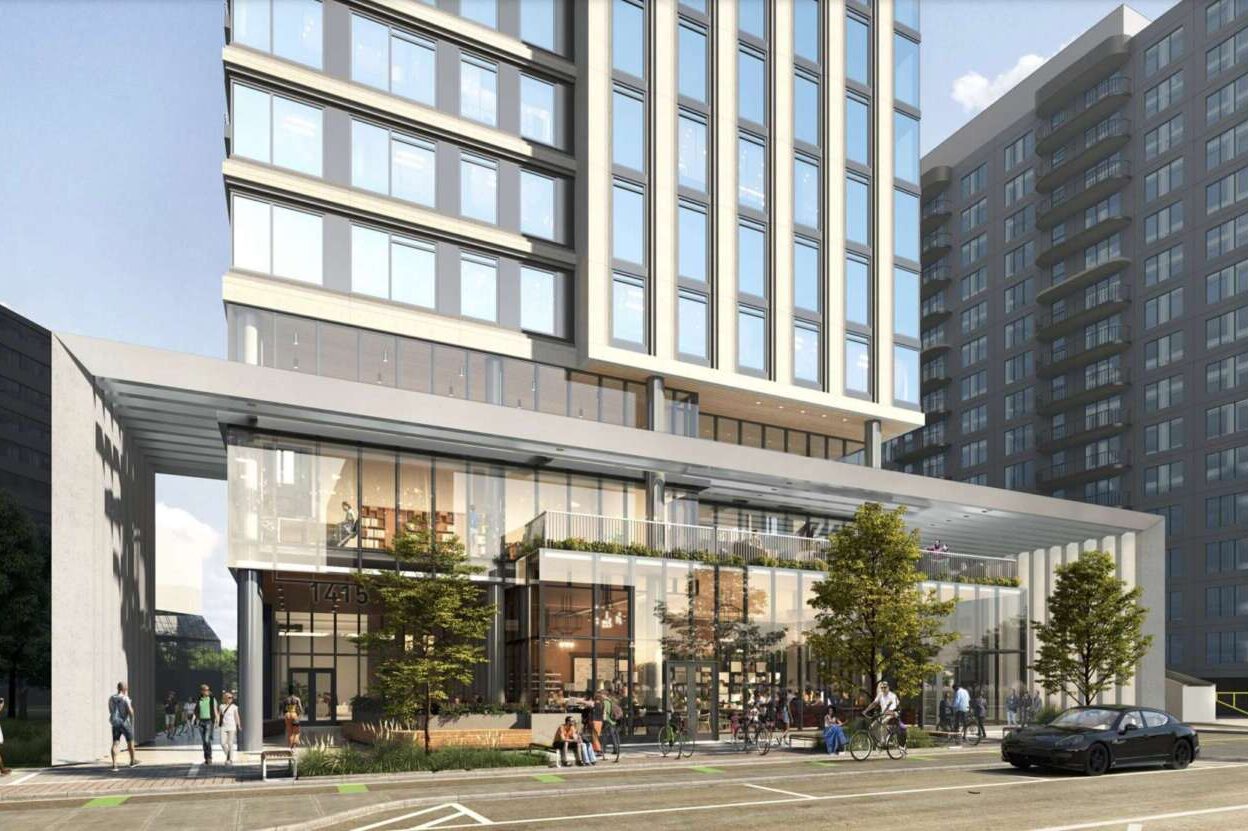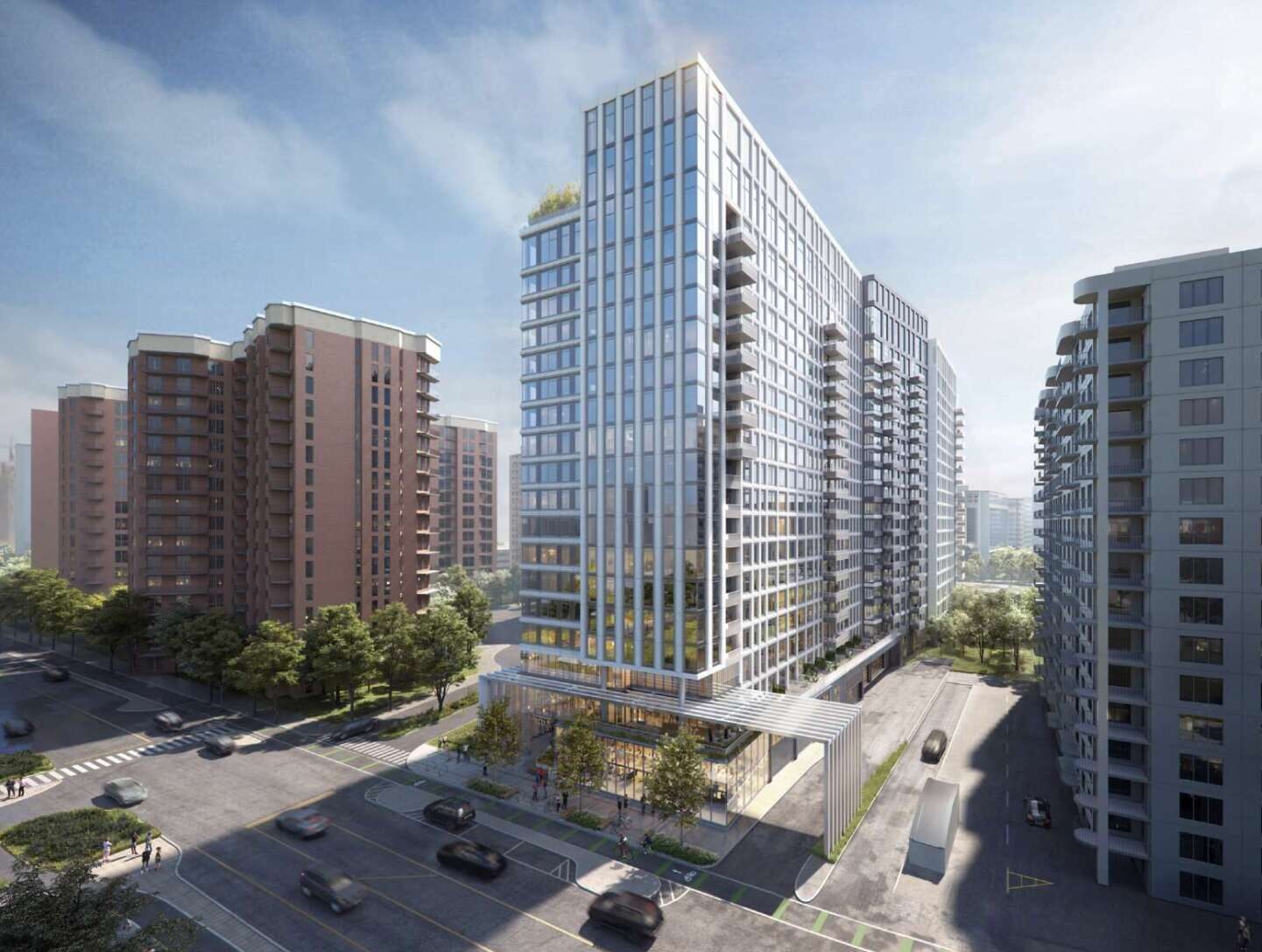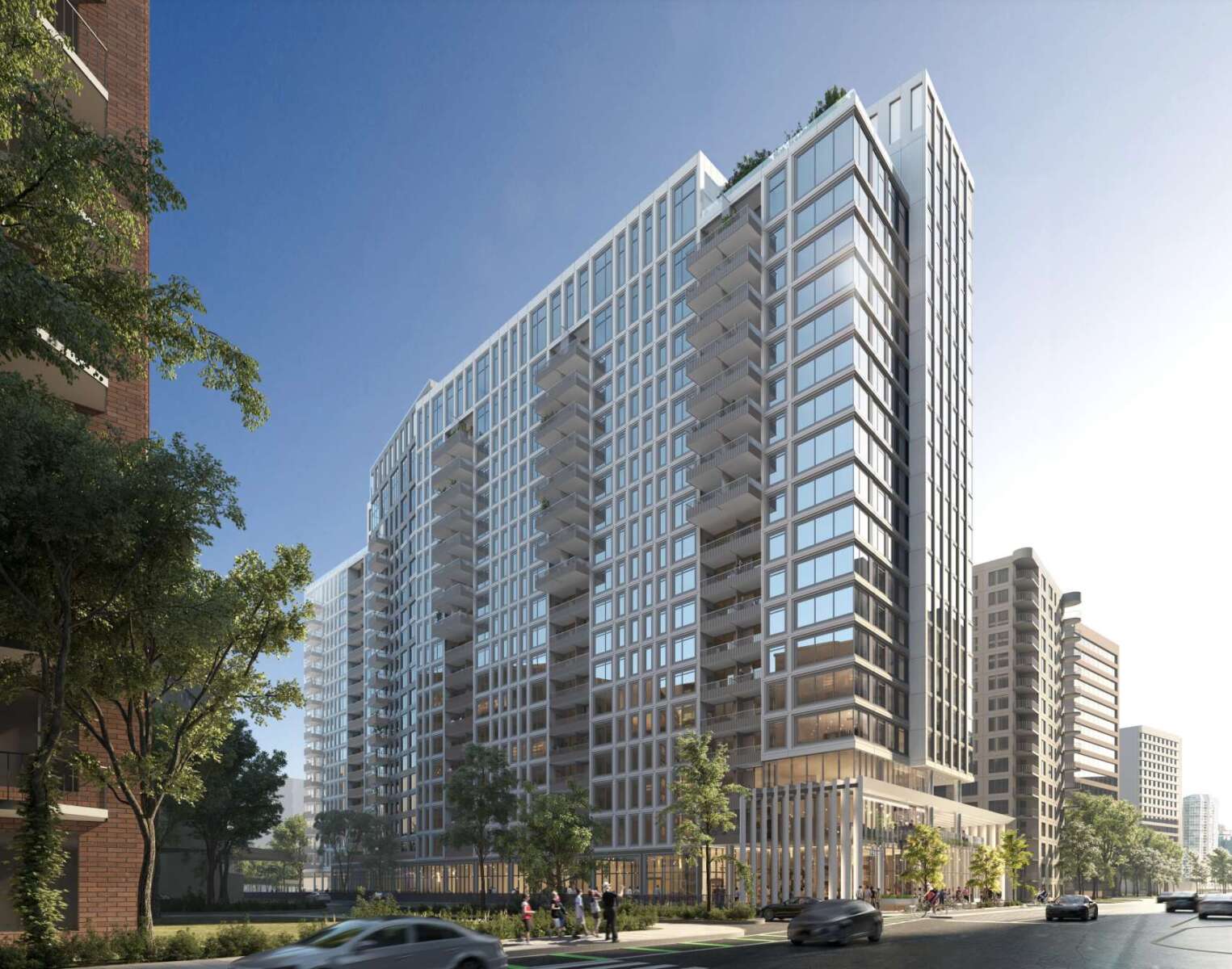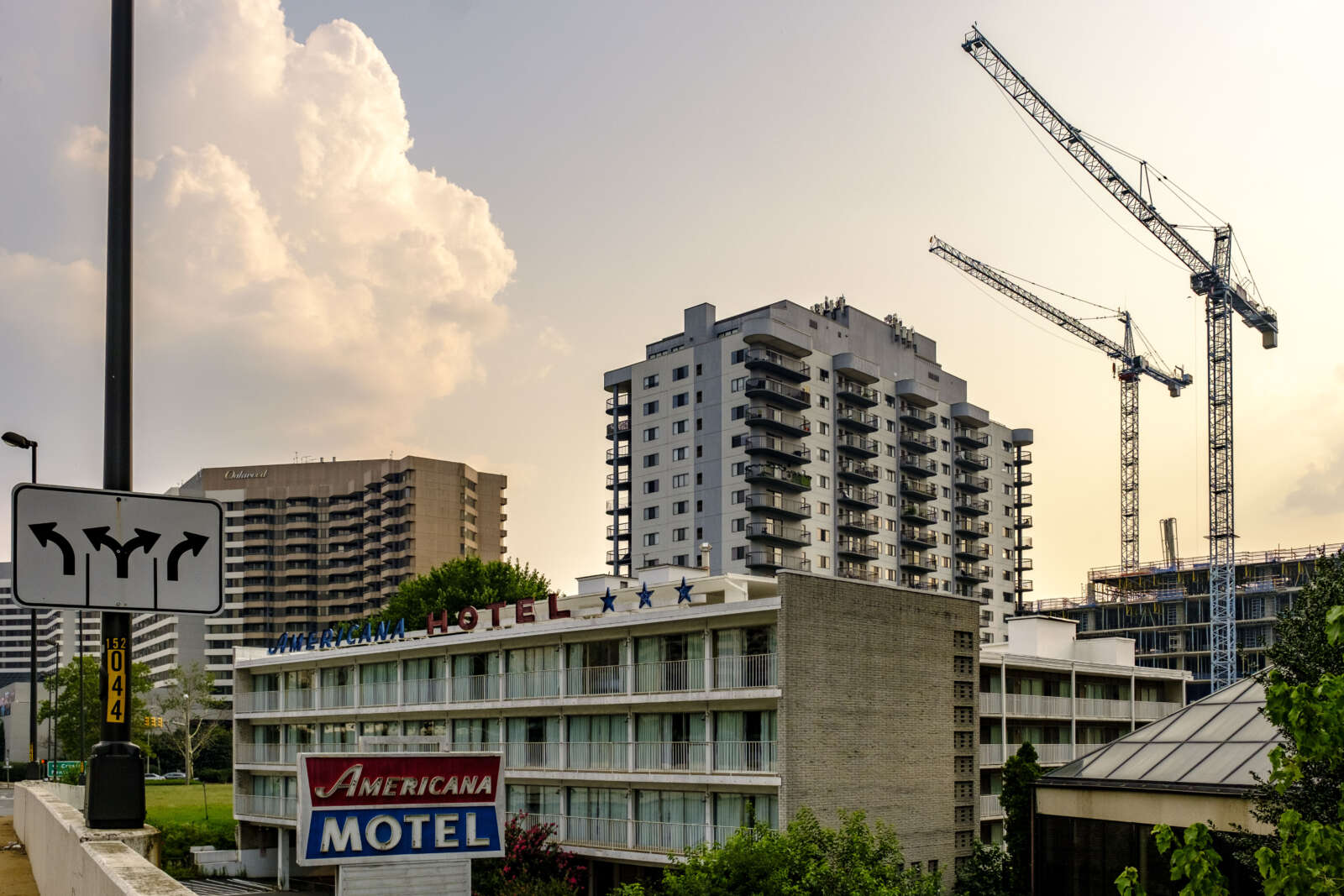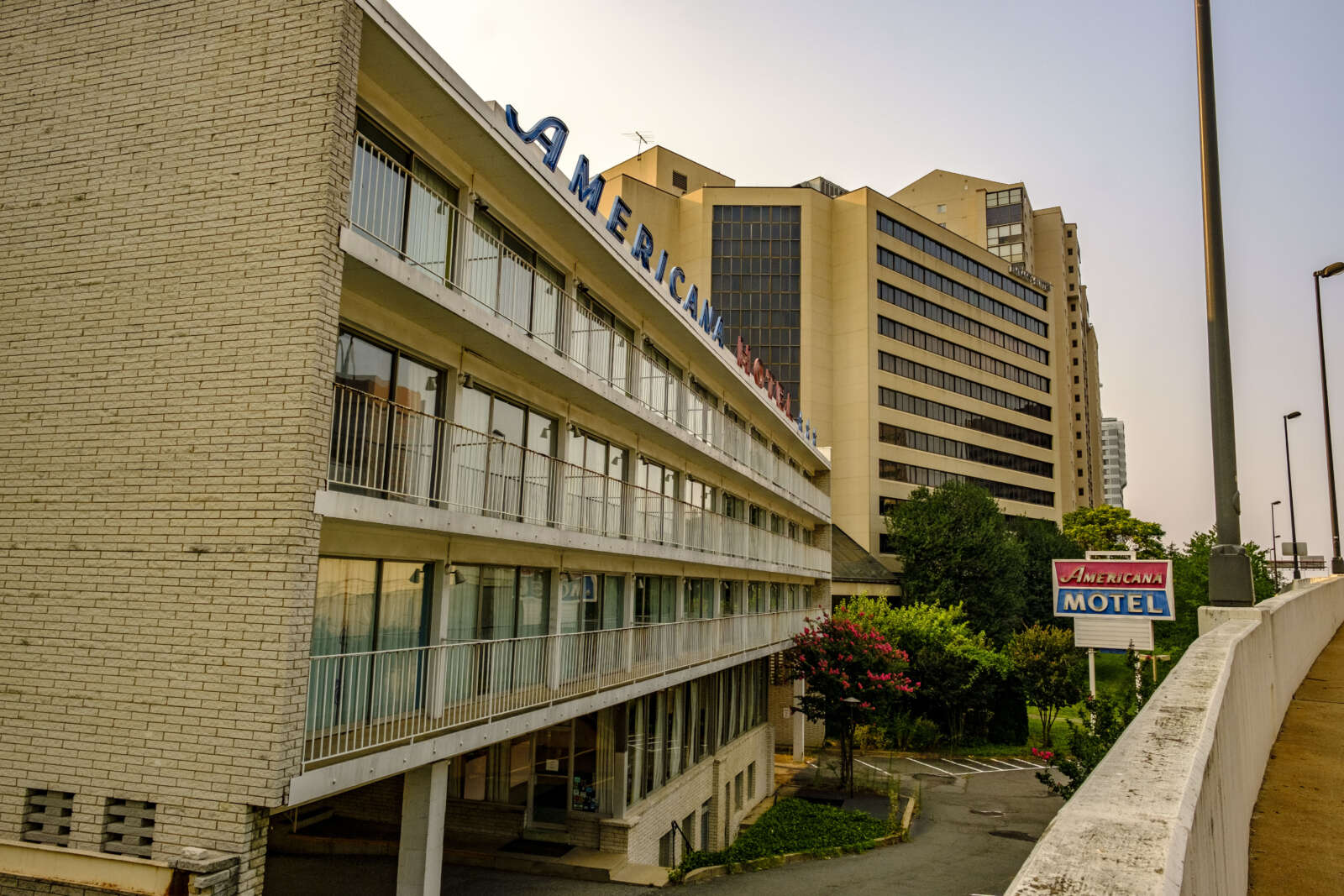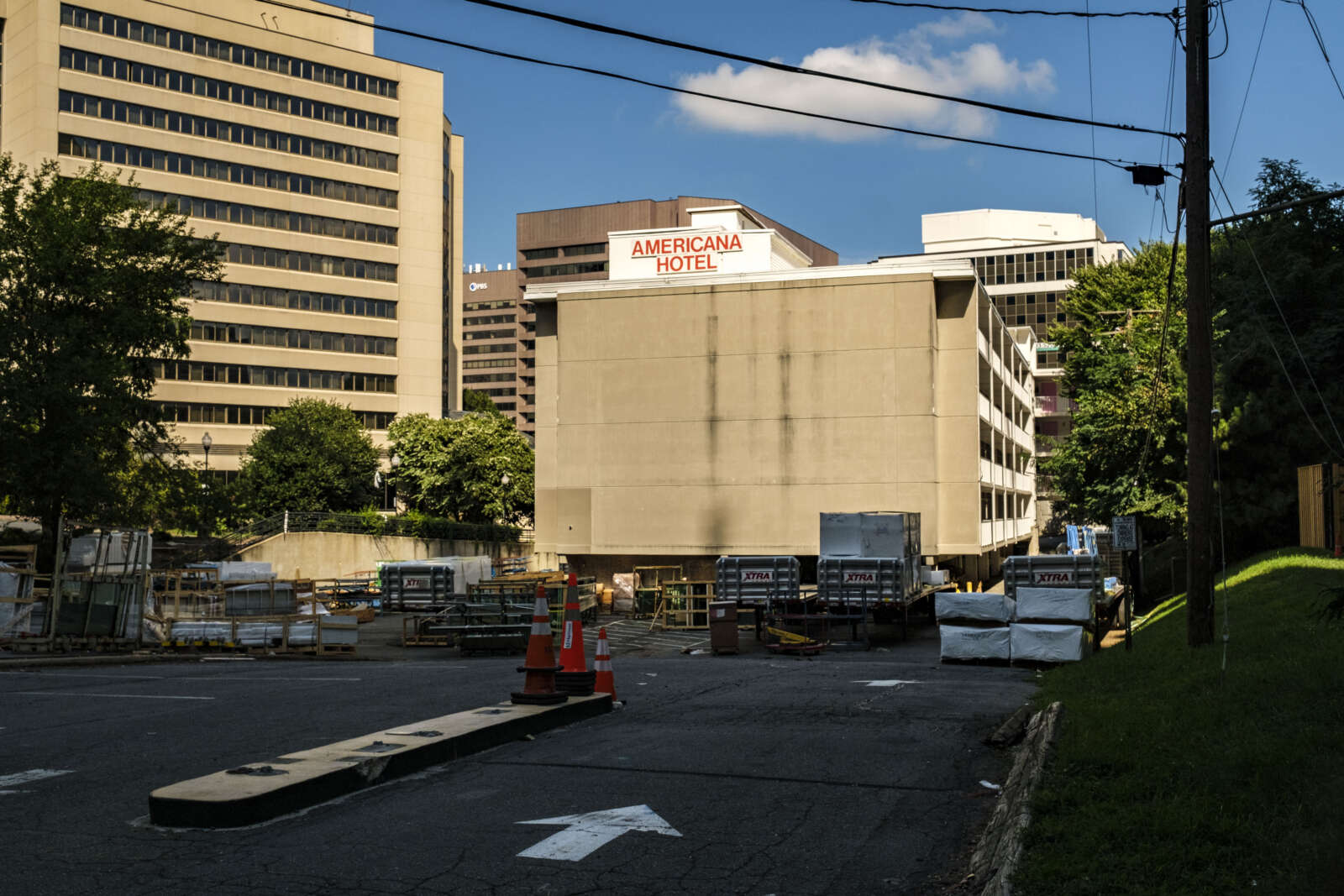Plans to redevelop the Americana Hotel in Crystal City cleared their penultimate hurdle despite criticism that the project does not provide on-site affordable housing.
The Planning Commission voted unanimously to approve plans from JBG Smith to redevelop the former motel at 1460 Richmond Hwy.
To get here, the developer has overcome sloping terrain and maneuvered future development plans for neighboring sites and Route 1, which the Virginia Department of Transportation plans to lower. The company also attended to lingering transportation and sustainability concerns.
JBG Smith proposes a 19-story apartment building with about 3,885 square feet of ground-floor retail. Of the 639 units, 33 will have three bedrooms. It’s across the street from Amazon’s under-construction HQ2, the first phase of which is expected to open this summer.
There will be two levels of underground parking, with 188 residential and visitor parking spaces, and 206 off-site parking at the Bartlett Apartments. JBG Smith proposes a 2,800 square-foot green space area with a small, private outdoor amenity area and a small dog run.
As for affordable housing, JBG Smith is making a baseline contribution to the county’s Affordable Housing Investment Fund (AHIF) of $2.1 million and making an additional $7.53 million contribution to leverage about 80 committed affordable units (CAFs) at the Crystal House Apartments at 1900 S. Eads Street, about one-third of a mile away.
There, two developers will oversee the construction of 655 CAFs and 189 market-rate units. Amazon helped a nonprofit purchase the 16-acre site and stabilize rent for the 828 existing units and build new units, later donating the land and development rights to Arlington County.
Some Planning Commission members, however, were emphatic that all future projects need some on-site affordable units.
“Every project needs to have on-site affordable housing. Period. Every single project,” Chair Devanshi Patel said.
Currently, developers seeking a large-scale redevelopment can offset that with an AHIF contribution or the provision of on-site or off-site units. In exchange, they can build taller buildings and, in the case of apartments, add more units. Most developers will make a cash contribution and it is rarer to see on-site units, though some recent projects have included setting aside existing units off-site for affordable housing.
“If we hold ourselves out to be a ‘welcoming, thriving, inclusive community,'” — and here she changed voices, suggesting air quotes or skepticism — “then we need to stand by that and that means we need to have affordable housing at every project,” Patel said.
Requiring this could mean fewer overall affordable units, however, said Commissioner Daniel Weir. Citing insights from JBG Smith and county staff, he said insisting on on-site CAFs on the site could yield 30 units as opposed to the 80 at Crystal Houses.
“At what cost are we willing as a county to pay for that?” he asked. “That’s not a leading question. I can think of arguments either way.”
Commissioner Stephen Hughes said he typically votes against projects without on-site affordable units but he is comfortable supporting this one because Crystal Houses is so close by.
But the “slippery slope” of relying on cash contributions is that it incentivizes the county to pursue the “biggest bang from AHIF buck” — redeveloping as dedicated affordable housing aged properties on the western end of Columbia Pike where there is concentrated poverty, for instance.
“That’s not the right thing for our community,” he said.
For this reason, Planning Commission Vice-Chair Sara Steinberger supports on-site affordable units, even if it yields less units, because these units would be more spread out geographically.
Commissioner Nia Bagley agreed. She said she personally believes the county can require more of developers without driving them away from building in Arlington.
“There seems to be some fear that if we ask for too much, they’ll go away,” she said. “They won’t go away — there’s too much money to be made here. If we really want to be inclusive, really want to be a project that stands out, come back with a little more affordable housing.”
In her experience as a housing coordinator, however, Commissioner Elizabeth Gearin said such a requirement would cause rent to go up.
“When we used to require inclusionary units, what we saw was a comparable rise in everybody else’s rents in the building,” she said. “Yes, if we make this a priority, we find a way to implement it, but I do think we need to look at more creative ways to provide housing opportunities.”
She said there are “lots of ways” to use AHIF funds to address these needs, such as through location efficient mortgages, energy efficient mortgages and first time homebuyer programs.


